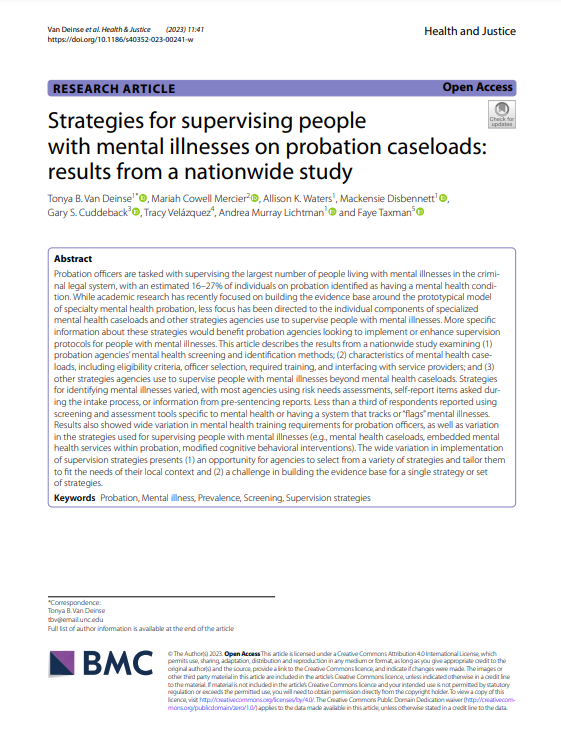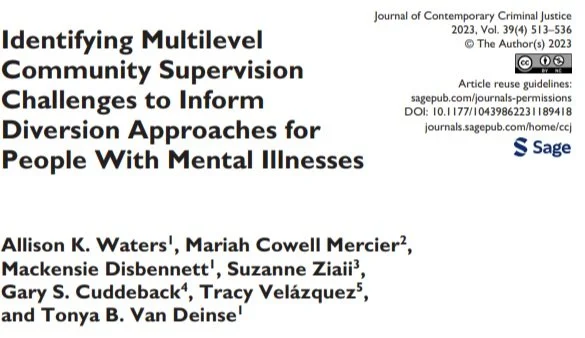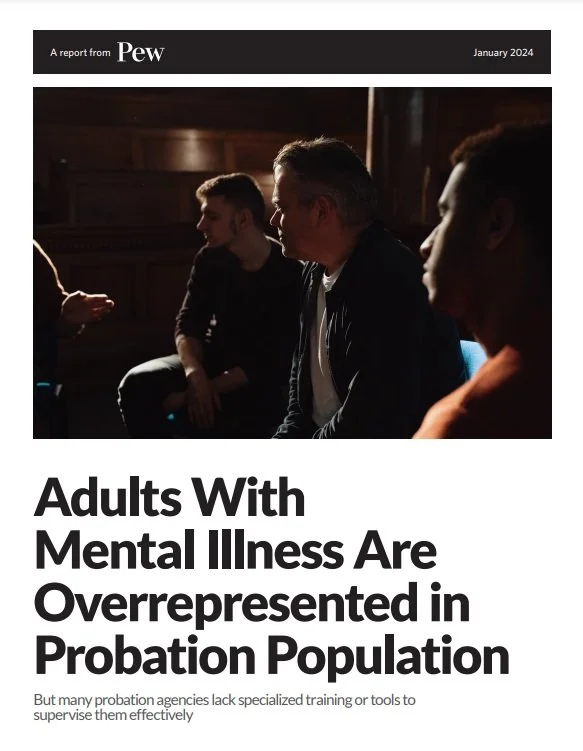The National Survey of Probation and Mental Health
Background:
The high volume of people with mental illnesses on probation means that community supervision agencies provide a critical point for service connection and diversion from the criminal justice system. However, little is known about probation agencies’ approaches to addressing mental illnesses among people on probation and how these models vary. This study helped to coalesce the research around the prototypical model in order to test its effectiveness and develop best practices for supervising people with mental illnesses. Although this prototypical model has shown promising results in subsequent studies, the model may not be representative of the range of mental health approaches implemented by probation agencies across the country and greater attention on the effectiveness of agency approaches is needed.
Aims:
What are the jurisdiction-reported prevalence rates of mental illness and what strategies do counties use to identify and track individuals on probation who have mental illnesses (e.g., screening tools, mental health "flags" in case management systems)?
What specialized mental health approaches do probation agencies use to supervise people with mental illnesses (e.g., specialized staffing and caseloads, differential use of sanctions and other criminal justice responses to address violations, diversion to treatment)?
In what ways have probation agencies adapted mental health supervision approaches (including screening and referral protocols) to COVID-19?
Principal Investigator:
Tonya Van Deinse
Articles:
Van Deinse, T.B., Mercier, M.C., Waters, A., Disbennett, D., Velázquez, T., Cuddeback, G.S., Taxman, T. (2023). Strategies for supervising people with mental illnesses on probation caseloads: Results from a nationwide study. Health & Justice, 11(1), 1-16. https://doi.org/10.1186/s40352-023-00241-w
Waters, A., Cowell Mercier, M., Disbennett, M., Ziaii, S., Cuddeback, G., Velázquez, T. & Van Deinse, T. (2023). Identifying multilevel community supervision challenges to inform diversion approaches for people with mental illnesses. Journal of Contemporary Criminal Justice, 39(4), 513-536. https://doi.org/10.1177/10439862231189418





